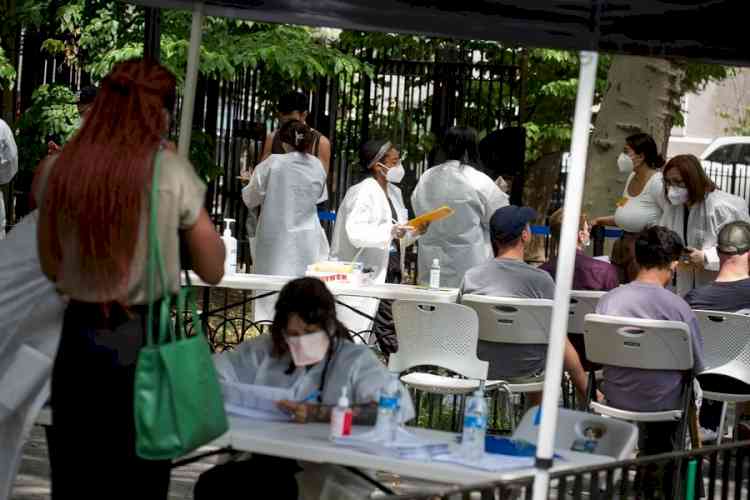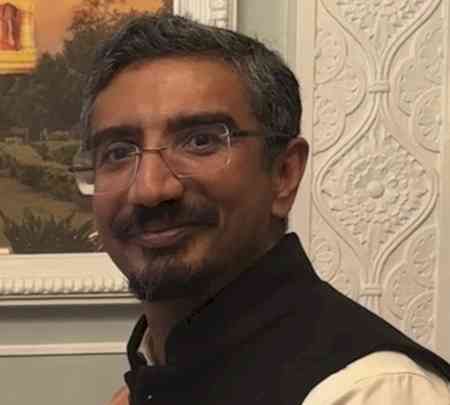1 in 5 people fear getting monkeypox in US: Report
In the US, about 1 in 5 of those surveyed (19 per cent) are somewhat (14 per cent) or very worried (5 per cent) about getting monkeypox in the next three months, while 81 per cent are not too (41 per cent) or not at all worried (40 per cent), reveals a new study.

New York, July 30 (IANS) In the US, about 1 in 5 of those surveyed (19 per cent) are somewhat (14 per cent) or very worried (5 per cent) about getting monkeypox in the next three months, while 81 per cent are not too (41 per cent) or not at all worried (40 per cent), reveals a new study.
The study also revealed that a large majority (69 per cent) knows that monkeypox usually spreads by close contact with an infected person. However, a quarter of those surveyed (26 per cent) are not sure whether that is true or false.
"It is important that the public calibrate its concerns to the reality of the risk of Covid-19 and monkeypox and act appropriately," researcher Kathleen Hall Jamieson from the University of Pennsylvania, said in a statement.
Monkeypox a disease endemic in parts of Africa whose spread to 75 countries across the globe led the World Health Organization (WHO) to declare a global health emergency on July 23.
In all, 2 in 3 Americans (66 per cent) either are not sure (51 per cent) whether a vaccine for monkeypox exists or do not think it exists at all (15 per cent).
One in 3 people (34 per cent) correctly know that a vaccine for monkeypox exists.
The Food and Drug Administration (FDA) has licensed a vaccine for preventing monkeypox infection and a vaccine licensed for smallpox is also available to prevent monkeypox infection, according to the Centers for Disease Control and Prevention (CDC).
For the study, the team surveyed 1,580 US adults.
The survey answered questions such as: How worried is the public about becoming infected with Covid-19 or monkeypox? Does the public possess basic knowledge about monkeypox? How widespread is misinformation about monkeypox?



 IANS
IANS 










